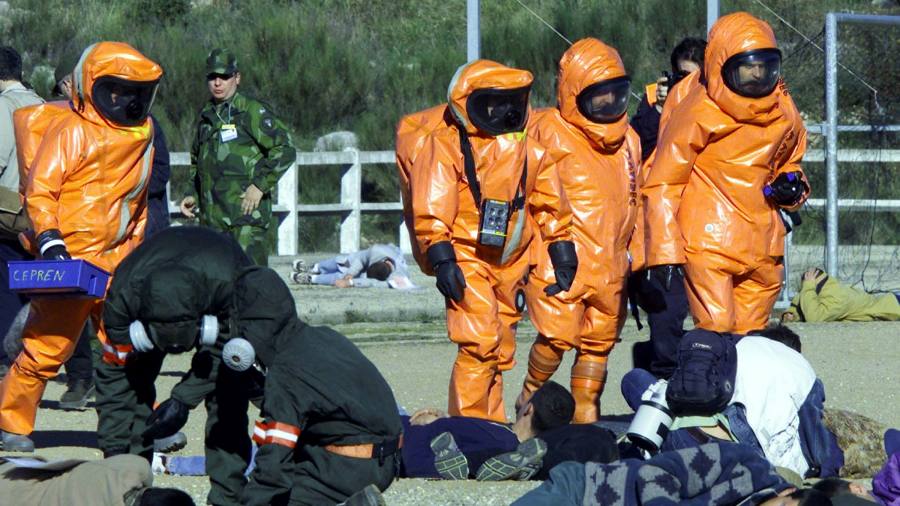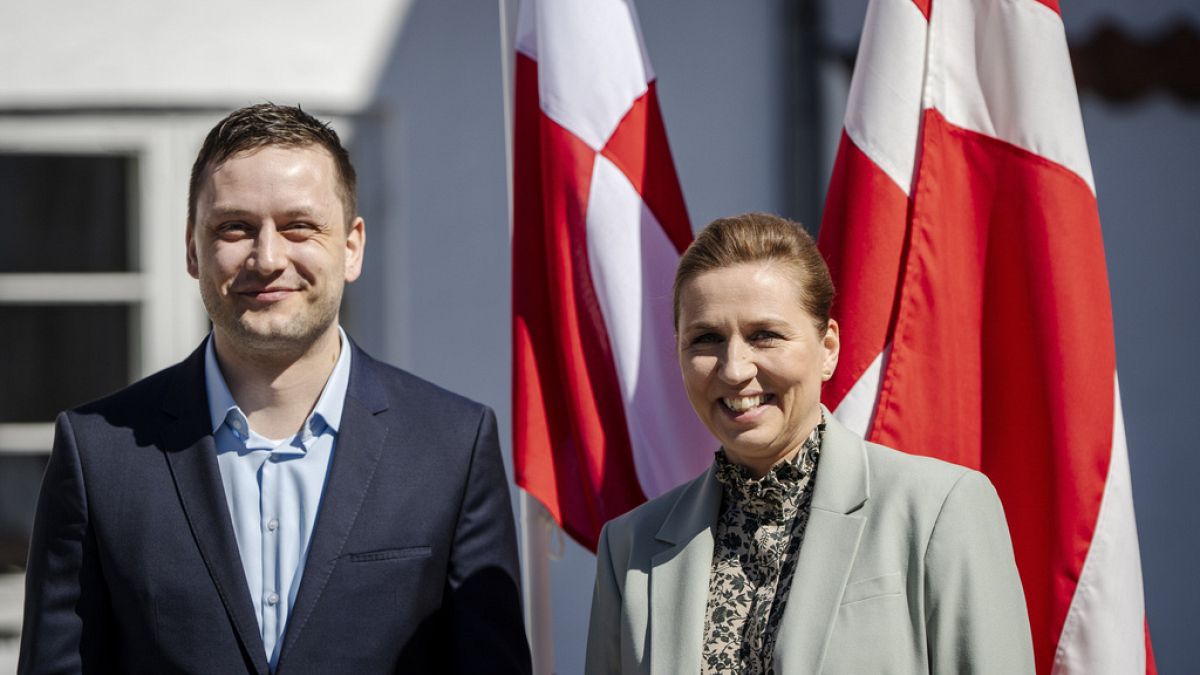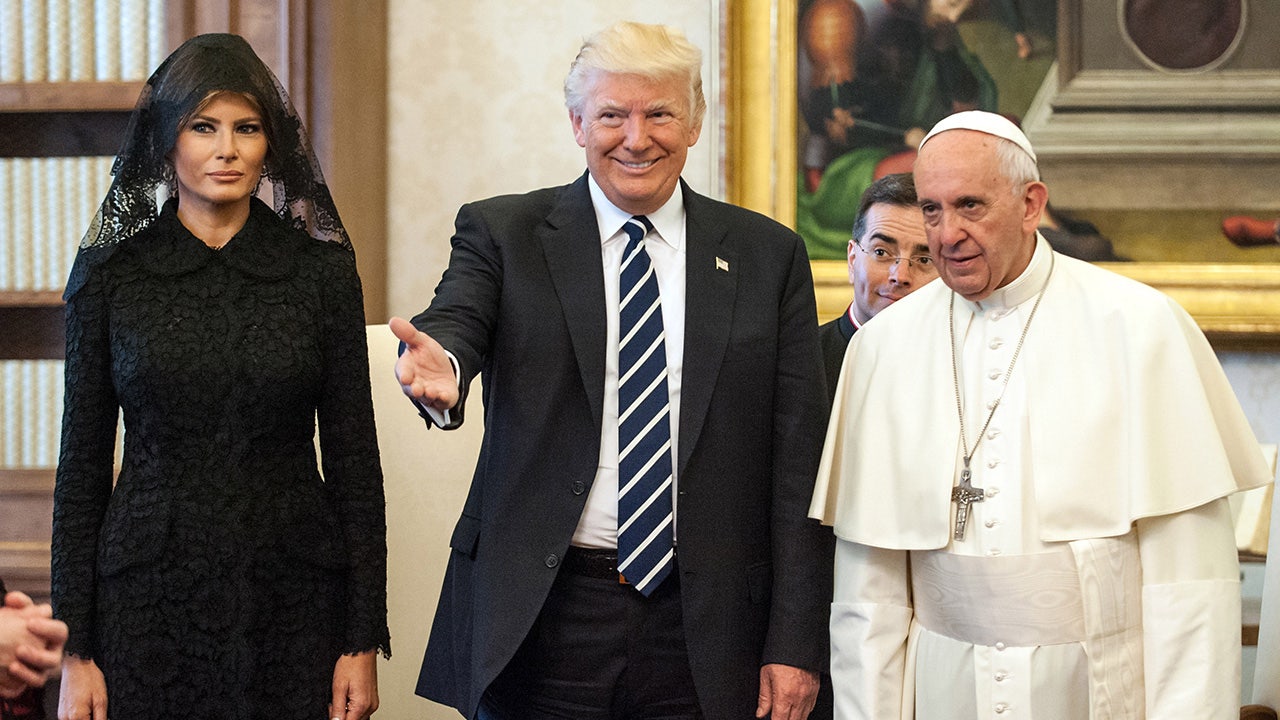Donald Trump’s trade war with Beijing is starting to affect the wider US economy as container port operators and air freight managers report sharp declines in goods transported from China.
Logistics groups said container bookings to the US have fallen sharply since the introduction of 145 per cent tariffs on Chinese imports to the US.
The Port of Los Angeles, the main route of entry for goods from China, expects scheduled arrivals in the week starting May 4 to be a third lower than a year before, while airfreight handlers have also reported sharp falls in bookings.
Bookings for standard 20-foot shipping containers from China to the US were 45 per cent lower than a year earlier by mid-April, according to the latest available data from container tracking service Vizion.
John Denton, secretary-general of the International Chamber of Commerce, said the upheaval in China-US trade flows reflected traders “kicking decisions down the road” as they waited to see how quickly Washington and Beijing could reach a deal to lower tariffs.
A survey of ICC members conducted in more than 60 countries after Trump’s April 2 “liberation day” tariff announcement showed expectations that trade would be permanently impacted, whatever the result of coming negotiations.
The cost of access to the US market would be the highest since the 1930s, Denton said. Referring to the baseline tariff for all countries, he said there was “almost an acceptance that 10 per cent will be the minimum charge to access US market, whatever other uncertainties there may be”.
Washington and Beijing showed signs of starting to feel the effects — with both sides announcing some tariff exemptions this week on important products for their respective economies and Trump predicting the 145 per cent tariff would “come down substantially”. However, China said on Friday it was not in talks with the US.
As the first container shipments from China to face tariffs are due to land in the US in the coming week, freight operators said supply chains were shifting.
Nathan Strang, ocean freight director at US logistics group Flexport, said companies were waiting to ship goods in anticipation of Washington and Beijing agreeing a deal to mitigate the levies.
US importers are looking to use up stockpiled inventories before importing fresh stock from China, said logistics executives. They are also holding stock in bonded warehouses where inventory can be stored duty-free with taxes paid on withdrawal, or diverting it to other nearby countries such as Canada.
“They’re sitting on goods at origin, sitting on goods at destination,” Strang said, warning that if a deal was done to cut tariffs, shipping rates would then jump sharply.
Hapag-Lloyd, one of the world’s largest container shipping lines, said Chinese customers had cancelled roughly 30 per cent of its bookings out of China.

Hong Kong-listed Taiwanese container shipping company TS Lines has suspended one of its Asia to US west coast services in recent weeks. “Demand is not there,” one person at the group said.
The declines in order volumes have fed through to landings in Los Angeles, according to shipping data analysts Sea-Intelligence, which reported a surge in ‘blank sailings’, where scheduled vessels from China were being cancelled.
Almost 400,000 fewer containers are booked on Asia to North America routes during the four weeks from May 5 than planned — a 25 per cent drop from the amount scheduled for the same period at the start of March, before tariffs were imposed.
The Port of Los Angeles alone expects 20 blank sailings in May, representing more than 250,000 containers — up from six in April.
That is a sharp fall from this week, when arrivals were up by 56 per cent year-on-year — a sign that importers have been frontloading deliveries from other south-east Asian manufacturing hubs such as Cambodia and Vietnam that are enjoying a 90-day “pause” in tariffs.
Container prices reflected the supply chain shift, according to data from logistics hub Freightos, with a 15 per cent increase in the price of a 40-foot container from Vietnam compared with a 27 per cent fall on major China-US routes.
“Rates from other Asian countries to the US may continue to climb ahead of the July tariff deadline,” Judah Levine, head of research at Freightos, said.
Airfreight volumes have also fallen sharply, according to US industry association the Airforwarders Association, with its members’ bookings from China falling roughly 30 per cent.
“A lot of members have just stopped receiving orders from China,” said executive director Brandon Fried. “It’s also creating a whipsaw effect on prices and booking rates as traders reacted to each piece of news from the White House.”
The industry is expected to be further hit by a US decision to close its ‘de minimis’ scheme that allowed goods valued at under $800 to be imported tariff-free, an important route for e-commerce retailers such as Shein and Temu. Chinese goods are set to lose the exemption from May 2.
Lavinia Lau, chief commercial officer at Hong Kong’s Cathay Pacific, whose air cargo business contributes about a quarter of its revenue, said it expected a “softening” of demand between China and the US because of the tariffs and de minimis rule changes.
Hong Kong freight forwarder Easyway Air Freight said business from China to the US dropped roughly 50 per cent following the tariff increases.
E-commerce executives noted waning freight demand. Wang Xin, head of the Shenzhen Cross-Border E-Commerce Association, said: “We are seeing noticeably fewer price quotation requests in relation to air cargo shipments.”
Even though stockpiling and supply-chain reorientation have helped buffer consumers from the sharp falls in freight volumes, hauliers and retailers are starting to feel the effects of the slowdown in imports.
Arizona-based Knight-Swift Transportation, one of the largest US trucking companies, warned of lower anticipated volumes, citing uncertainty caused by the tariffs threat.
Chief executive Adam Miller said some of the group’s largest customers were “expressing concern” that the cost of tariffs would feed into lower volumes in May.
“There are some that have told us that, yes, they’ve cancelled orders or they’ve stopped ordering, particularly from China, and we’ll figure out how to adjust their supply chain to avoid the cost,” he said.
Retail consultants said purchasing patterns were reflecting the three successive months of softening consumer confidence indices.
John Shea, the chief executive of Momentum Commerce, which helps consumer companies sell about $7bn annually on Amazon, warned of a potential “double whammy” of rising prices and falling consumer spending.
“We’re seeing evidence that consumers are starting to trade down . . . while at the same prices are creeping up,” he said.
Data visualisation by Clara Murray



























